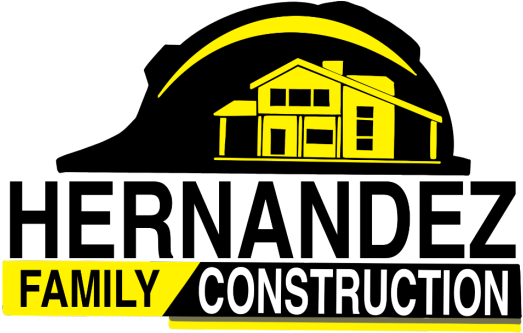Homebuyers CDD Fees in Florida & California

When purchasing a home in Florida, understanding Community Development District (CDD) fees is essential. These fees, commonly listed in property information, can impact your financial responsibilities as a homeowner. But what are CDD fees in Florida, and why do they matter? In this guide, we’ll break down what CDD means, how they function, and the pros and cons of CDD fees to help homebuyers make informed decisions.
What is a CDD in Florida?
A Community Development District, or CDD, is a type of local government entity in Florida. It’s designed to finance, build, and maintain infrastructure and amenities within a planned community. Think of roads, utilities, parks, and recreational spaces—these are all part of what a CDD oversees.
Unlike an HOA, which focuses on maintaining aesthetic standards and community guidelines, a CDD handles the core infrastructure that makes neighborhoods functional. This distinction is crucial for homebuyers navigating CDD fees in Florida.
What Are CDD Fees in Florida?
CDD fees are financial contributions required from homeowners in a CDD community to fund the district’s infrastructure and services. These fees generally cover two types of expenses:
- Bond Assessments: These are fixed amounts used to repay loans taken for the initial development of infrastructure like roads, drainage, and other utilities. They typically last 20-30 years.
- Operations and Maintenance (O&M) Assessments: This portion covers ongoing costs for maintaining amenities such as parks, pools, and community centers. These fees are adjusted yearly.
Both types of fees are often bundled into your property tax bill or mortgage payment, making them unavoidable for residents.
CDD Meaning in Real Estate
In real estate, CDD meaning refers to the financial structure tied to properties located within a Community Development District. Homebuyers CDD fees in Florida are a significant consideration because they impact your monthly costs and long-term financial commitments.
How Are CDD Fees Calculated?
CDD fees in Florida are determined based on the infrastructure costs divided among all properties in the district. For instance:
- If infrastructure costs $10 million, and there are 1,000 homes, the bond assessment per home might be $10,000.
- Maintenance fees vary yearly and depend on the district’s operational budget.
These fees are tied to the land itself, meaning they transfer to new owners upon the sale of a property.
CDD Fees vs. HOA Fees in Florida
While both CDD and HOA fees contribute to a community’s upkeep, they are distinct:
- HOA Fees: Cover aesthetic and social aspects, like landscaping, enforcing rules, and hosting events.
- CDD Fees: Focus on infrastructure development and operational maintenance.
This difference is crucial for homebuyers navigating CDD fees in Florida since both fees might appear in your property costs.
Pros and Cons of CDD Fees
Pros of CDD Fees
- Well-Developed Infrastructure: CDDs fund essential roads, utilities, and amenities, making neighborhoods attractive.
- Amenities: From parks to pools, the services provided enhance quality of life.
- Homeowner Control: Over time, residents gain control of the CDD board, giving them a voice in decisions.
Cons of CDD Fees
- Long-Term Costs: Bond assessments may last decades, while maintenance fees are ongoing.
- Financial Risks: During economic downturns, CDDs can face financial strain, impacting homeowners.
- Lack of Transparency: Some buyers struggle to understand their CDD obligations fully.
Are CDD Fees in Florida Tax Deductible?
Generally, CDD fees in Florida are not tax-deductible. While they appear on your property tax bill, they are considered assessments rather than ad valorem taxes. Consult a tax professional for clarity.
How to Get Out of CDD Fees
Once bond assessments are paid off (typically after 20-30 years), that portion of your CDD fees may disappear. However, the operations and maintenance fees are perpetual as long as you live within the CDD community. Some buyers seek homes advertised as “no CDD fees,” but such properties often lack the same level of infrastructure or amenities.
CDD Meaning on Property Information in Florida
When property listings mention "CDD," it signifies that the home is within a Community Development District, subject to CDD fees. Always ask for a breakdown of these fees before making a purchase decision.
Florida CDD Fees: Are They Worth It?
For many homeowners, Florida CDD fees are worth the investment due to the high-quality infrastructure and amenities provided. However, understanding the long-term costs and ensuring transparency in your property agreement are key.
Conclusion
Understanding homebuyers CDD fees in Florida is a vital part of purchasing property in the Sunshine State. While these fees contribute to well-maintained communities with top-tier infrastructure and amenities, they also require careful budgeting and consideration. For those navigating CDD vs HOA fees, knowing the distinctions will help clarify your financial responsibilities.
At Hernandez Family Construction, we build homes in communities that prioritize quality, transparency, and value. If you’re looking for properties with or without CDD fees, contact us today to explore your options.
FAQs
What does CDD stand for?
CDD stands for Community Development District.
How long do you pay CDD fees in Florida?
Bond assessments last 20-30 years, while maintenance fees are ongoing.
What is a CDD in real estate?
A CDD in real estate refers to a government entity that manages infrastructure development and maintenance for planned communities.
Can CDD fees increase?
Yes, maintenance fees may increase based on community needs. Bond assessments, however, remain fixed unless refinanced.
What does "no CDD" mean?
“No CDD” indicates that the property is not within a Community Development District and does not have related fees.
Are CDD fees tax-deductible?
CDD fees are not typically tax-deductible since they are assessments, not taxes.

"Understanding CDD fees is the foundation of building smarter homeownership decisions. At Hernandez Family Construction, we help you navigate these complexities, whether you're in Florida or California, so you can focus on creating your dream community."
